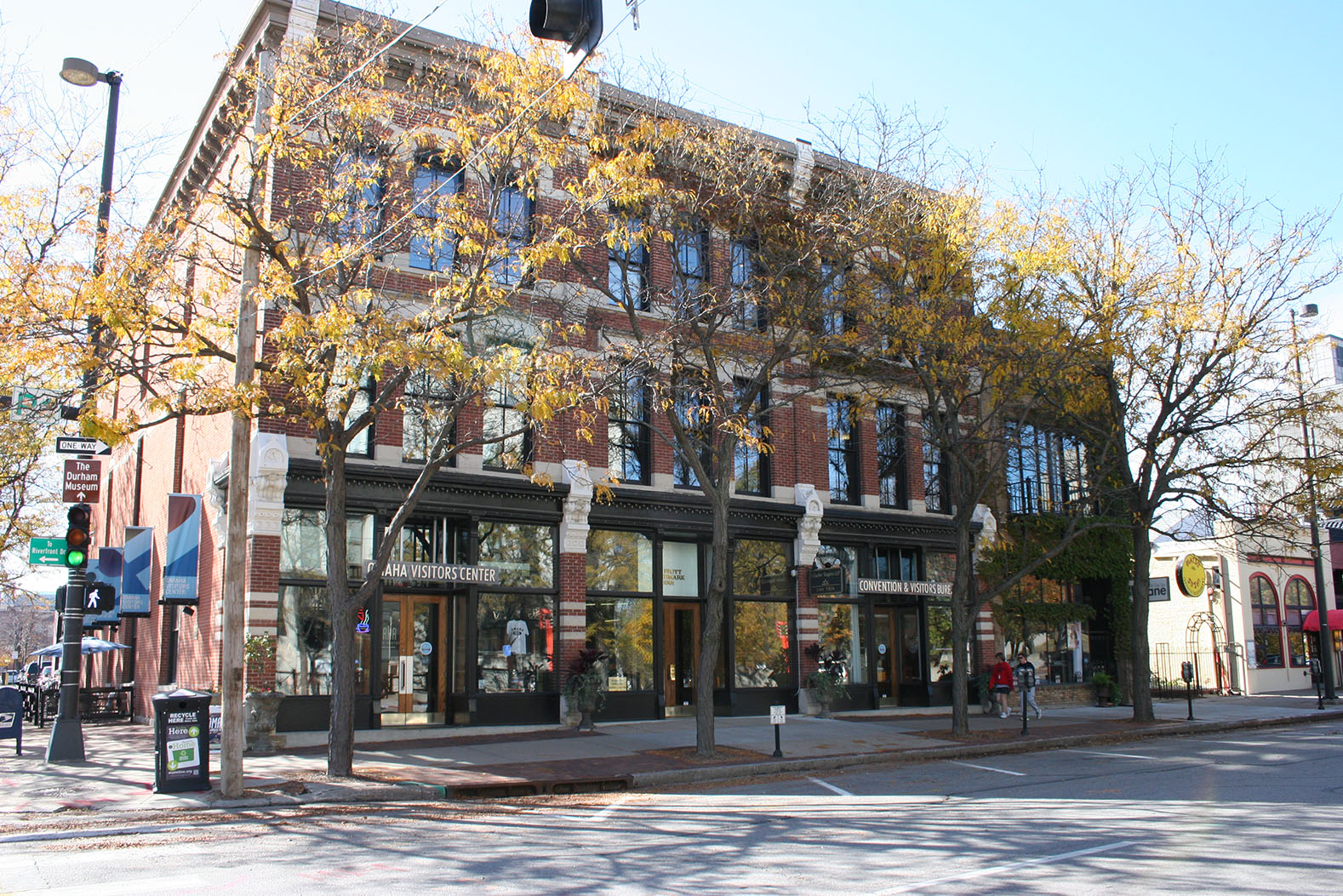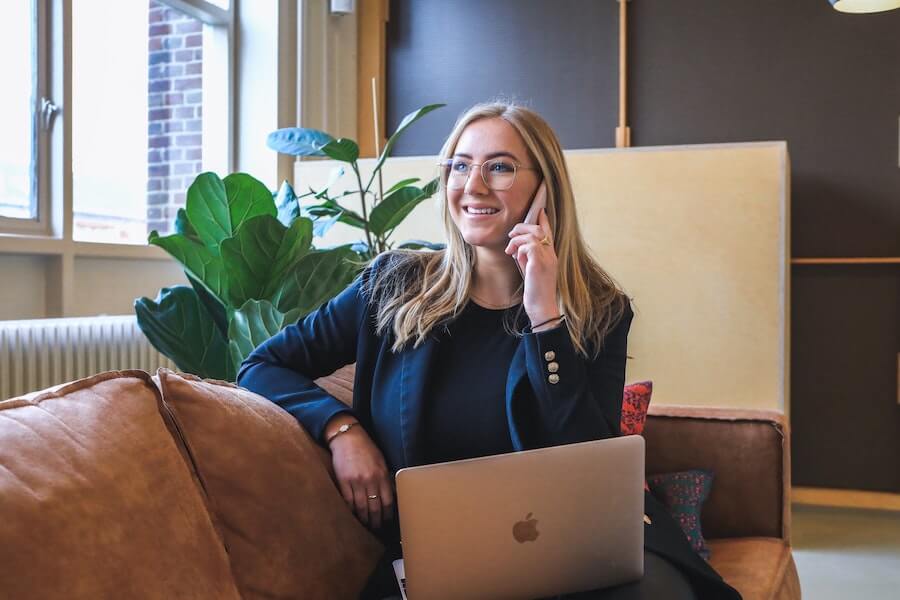In unusually difficult situations, a counterintuitive response to stress is what many leaders should aim for, say Jacqueline Brassey, McKinsey senior knowledge expert, and McKinsey senior partner Aaron De Smet as they talk about their new book, Deliberate Calm: How to Learn and Lead in a Volatile World (HarperCollins, November 2022), on The McKinsey Podcast with host and executive editor Roberta Fusaro.
The following transcript has been edited for clarity.
The McKinsey Podcast is hosted by Roberta Fusaro and Lucia Rahilly.
Growing pains
Roberta Fusaro: Over ten years ago, McKinsey senior partner Aaron De Smet was working so hard and traveling so much that he lost sight of dire circumstances at home.
Aaron De Smet: It took me a while to realize that my wife at the time had a severe addiction. And my family was not OK.
Roberta Fusaro: To deal with the crisis, he reacted in a way that was familiar to him.
Aaron De Smet: My reaction to problems that I feel passionate about is to tackle them head-on, to fix them, to control.
Roberta Fusaro: But trying to wield control over the situation didn’t help.
Aaron De Smet: The answer I came up with, I will say, did not help my family. I had to learn to truly change some pretty fundamental things about myself. Eventually, I had to learn to become a single father to two fairly traumatized girls who grew up in a very difficult situation where I initially did not show up in a way that was helpful to them.
Roberta Fusaro: Aaron’s self-reflection motivated him to write the book Deliberate Calm with Michiel Kruyt and Jacqui Brassey, McKinsey senior knowledge expert. This book aims to help leaders resist knee-jerk reactions to unanticipated events, which are happening more and more.
What is deliberate calm?
Roberta Fusaro: This is a special episode of The McKinsey Podcast, where we help you make sense of our world’s toughest business challenges. I’m your host for today, Roberta Fusaro. Here’s Jacqui.
Jacqui Brassey: Deliberate calm is a set of skills that helps leaders make the best decisions in the moment, even when it’s tough.
Aaron De Smet: We’re constantly faced with new levels of uncertainty, volatility. Change is now the norm. I grew up in a world where the way we think about how to handle a crisis is outdated. This book helps leaders understand how to change their relationship with change, how to change their relationship with uncertainty, and not to shy away from it. But it also provides a better tool kit for dealing with uncertainty on an ongoing basis.
At the crossroads of crises
Roberta Fusaro: Aaron’s thoughts on crisis management were influenced by Harvard professor Dutch Leonard, who says it’s important to understand that not all crises are created equal.
Aaron De Smet: He mentioned that there’s a difference between what he called a routine emergency and a crisis of uncertainty.
A routine emergency could be a building that’s on fire. And firefighters are in a very difficult situation with respect to the nature of the fire and lives at stake. However, if it is a fairly routine fire, the firefighters have likely trained for an event like this.
Roberta Fusaro: But in a crisis of uncertainty, Aaron says, you can’t fall back on what you know.
Aaron De Smet: I often want to react based on what I’ve already learned, not what I need to learn. Or I just shut down and freak out.
If you are in an uncertain situation, the most important thing you can do is calm down. Take a breath. Take stock. “Is the thing I’m about to do the right thing to do?” And in many cases, the answer is no. If you were in a truly uncertain environment, if you’re in new territory, the thing you would normally do might not be the right thing.
Roberta Fusaro: And if resisting the temptation to react as usual is hard, this is where you can be . . .
Aaron De Smet: . . . very cognizant of a mindset that is reactive to protecting the status quo, where I just fall back on what I know, versus a learning mindset where I have to say, “This is an opportunity for me to learn something and evolve and adapt.”
Roberta Fusaro: Jacqui Brassey agrees. She says that to evolve or adapt, people have to start from a place of awareness.
Jacqui Brassey: It’s helpful to know that there is a process going on in our brain and body and that there is science behind it. We have a protocol in the book that we describe: very simple steps, where for four weeks you can start observing the moments that you feel triggered by a stressful situation.
We have a couple of structured questions to help you understand what is actually going on: What goes on in your brain? What are your thoughts? What goes on in your body? What do you feel?
It’s also important that we learn to connect with our body because the brain is not just above the brain stem and disconnected from the rest of the body. It’s holistic.
It’s also important that we learn to connect with our body because the brain is not just above the brain stem and disconnected from the rest of the body. It’s holistic.
Jacqui Brassey none
Questioning instinct
Roberta Fusaro: Once you get good at objectively understanding your feelings, then you can notice what you’re doing in response to your emotions.
Jacqui Brassey: Are we moving toward something? Are we moving away from something? Are we trying to challenge what is ahead of us?
Roberta Fusaro: To give an example of deliberate calm both in action and not in action, Jacqui told a story about one business leader. His company was undergoing a large and high-profile transformation. Layoffs were on the horizon, and everyone was stressed. The leader . . .
Jacqui Brassey: . . . felt very responsible and like he needed to make this a huge success. But the time pressure was intense.
Roberta Fusaro: He wanted to move very fast, with no discussion, which created friction within the team. Sound familiar?
Jacqui Brassey: It is a typical example that you see in many organizational settings. This leader completely became so emotional; he went from overdrive to extreme overdrive and started shouting—so actually, the opposite of deliberate calm.
Another leader in the room started to have a conversation with him. But there was a difference in hierarchy. And what you also often see when there is stress, shouting, and a difference in hierarchy is that there is even more pressure on the person.
But this other leader really showed deliberate calm in action. He had an open posture and asked very calm and open questions to understand the situation. He even stayed calm and wasn’t bothered when he was personally attacked.
Eventually, he calmed down the situation and opened up the conversation. And it became a dialogue instead of a protection conversation, a fighting conversation.
The challenge of change
Roberta Fusaro: How hard is it to learn to be deliberately calm?
Aaron De Smet: Change is hard, and if you think about how many organizations drive change, they often start with: What’s the sense of urgency? What’s the case for change, to get people’s attention and convince them that they need to pay attention to this and need to commit to doing something different? Because even small things are hard to change once you have a built-in habit.
Two types of necessary awareness
Roberta Fusaro: Habits can be broken if people develop what Aaron and Jacqui call dual awareness.
Aaron De Smet: Dual awareness is the important connection between self-awareness and situational awareness. What is the situation and what does it call for? What are the characteristics of the situation? Is this a known situation with known solutions, where the thing I would normally tend to do is the right thing?
Or is this a new and different situation, where my normal habits or tendencies or reactions might not be of service? Which comes back to self-awareness: What are my normal habits and tendencies? What are the things I’m good at or not good at? What are my habitual reactions, and is that appropriate? Navigating conditions of great volatility and great uncertainty almost always requires a higher degree of dual awareness.
Roberta Fusaro: A good example of what happens when dual awareness is missing comes from the Netherlands. Jacqui says the minister of health there showed situational awareness but not personal awareness during the COVID-19 pandemic.
Jacqui Brassey: The minister at the time, Bruno Bruins, was so focused on serving the country and bringing all that was needed to the table that it seems he forgot to take care of himself. It’s possible he ignored his need for rest. As a result, during a parliamentary debate about the coronavirus, he fainted on national television a couple of weeks into nonstop crisis management.
When we talk about dual awareness, it is not only the focus of what is happening. It is also being always in communication with what’s going on for ourselves and asking, “How can I take care of myself to sustainably serve in this situation?”
Roberta Fusaro: And dual awareness is not just for individuals. Teams can also develop it by examining who they are as a unit and how the unit functions.
Aaron De Smet: How do we as a team tend to organize around an opportunity or challenge like this? Is that the right way to do it? Do we, as a team, have collective blind spots? How do we take a step back and make ourselves more aware? But often asking the right questions means different questions, curious questions, questions of, “Yeah, but why do we do it that way again?”
On a team, sometimes what you learn and do differently is in collaboration with others. It’s also a collective self-awareness of the team. What are we good at as a team? Who is good at what? How do we as a team tend to swarm a problem like this, and is that the right way to do it?
Deliberate calm data
Roberta Fusaro: Are leaders more effective or employees more productive when they implement these strategies? What do the data look like around deliberate calm?
Jacqui Brassey: We have our own study that we’ve done because we also train leaders in these skills. We’ve rolled out a program with a couple of thousand leaders and had a control group, so it was really a great setting to measure evidence.
What we found was that leaders showed three times better adaptive behaviors and outcomes and an improvement of seven and a half times in well-being versus the control group. These results were not only self-perceptions but also evaluated by others. So that is already amazing data.
The other data points that we have are that learning agility is the number-one driver of leader success and potential, ahead of IQ, personality-related EQ [emotional intelligence], ability-related EQ, and job experience. We also know the topics described in the book are related to overall better performance, confidence, creativity, and innovation.
Roberta Fusaro: The leaders trained in deliberate calm received positive feedback from peers and colleagues.
Aaron De Smet: What we found was that colleagues assessed people with just a little bit of training on these skills to be two to three times more effective on a range of things, from how good of a leader they were to how productive they were to how inspiring they were, and the quality of their decisions.
Colleagues assessed people with just a little bit of training on these skills to be two to three times more effective on a range of things.
Aaron De Smet none
Practice makes perfect
Roberta Fusaro: If I’m practicing deliberate calm and I serve as a mentor to 12 people in my company, and I can role model that behavior, I imagine that the effects can be exponential.
Aaron De Smet: Our belief is that there’s a tipping point that helps a whole organization improve on these things. You’re putting in place psychological safety. The skills involved start creating a foundation of things that, when they all come together, create a bit of magic.
Roberta Fusaro: Building the foundation takes time and practice.
Jacqui Brassey: We’re not prescriptive about what would be good, because everybody individually should find out what works for them. But there are many ways to build these skills. The phrase “corporate athlete” sometimes comes up in our conversations. It’s the same as anybody who wants to train for a marathon or for some high-level sports. You don’t do that overnight. You practice.
Roberta Fusaro: How important is it to see deliberate calm as a process more so than a destination?
Jacqui Brassey: It is always a process. It’s a journey. Even though I am one of the coauthors on this book, I also sometimes forget to practice deliberate calm. But when I become aware of it, I try to be kind to myself and pick up where I left off.
We know from research that we can continue to learn and develop well after our 80s. So there is a lot of hope. There is a lot of opportunity. If you pay attention to it and if you’re intentional and you really want to grow and develop, you can absolutely enjoy that lifelong learning experience for a very long time. I would say, well beyond our old age. These skills won’t become outdated, and they can be applied to many different types of situations.
Roberta Fusaro: Deliberate Calm is available for purchase online and in stores on November 29.






